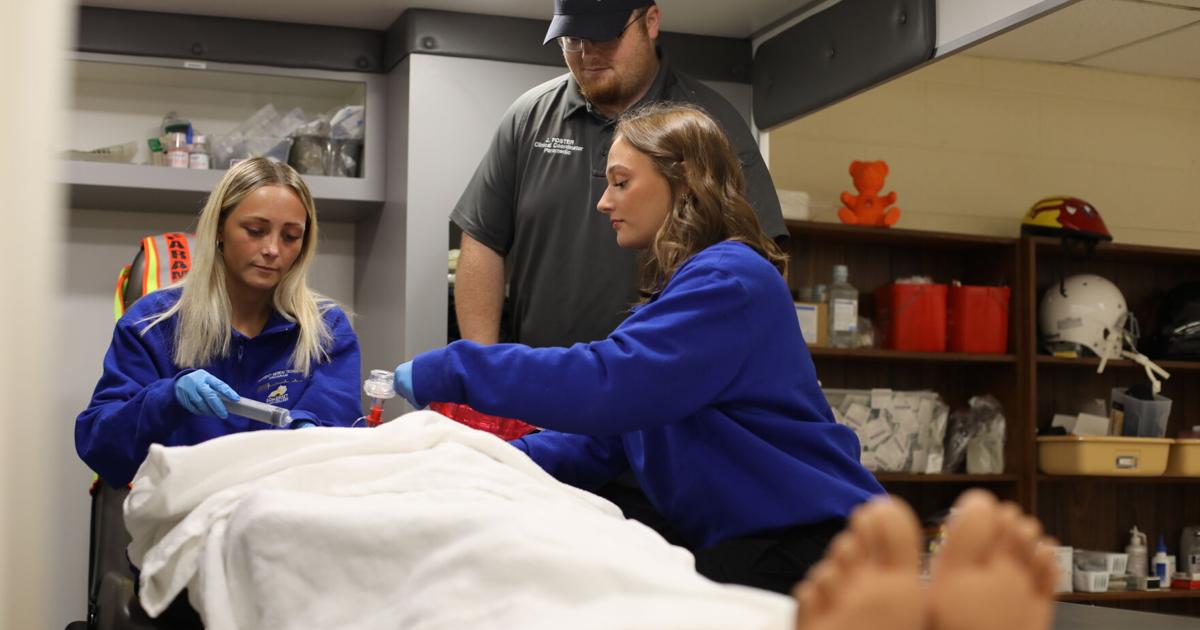
Somerset Community College Celebrates Dual Credit EMT Graduates
In a significant achievement, Somerset Community College (SCC) has officially commenced its Dual Credit Week by honoring two local high school students who are set to become the first to complete the Emergency Medical Services Technology (EMT) program at the SCC Somerset Campus. This initiative reflects a broader commitment to enhance education pathways and career readiness among high school students in the region.
Kylie Cole and Olivia Roberts, both seniors at Southwestern High School in Pulaski County, have taken on the responsibilities of future emergency medical technicians at the young ages of 17 and 18, respectively. Their pioneering roles as dual credit students in this 16-week intensive program exemplify the opportunities available to high schoolers seeking to advance their education while obtaining vocational skills that are in high demand in the workforce.
The EMT program at SCC is designed to provide students with the essential knowledge and hands-on experience required to excel in emergency medical services. Participants engage in both theoretical learning and practical training, preparing them for the rigors and responsibilities associated with emergency care. As part of their coursework, students learn about patient assessment, trauma care, and the operation of emergency vehicles, among other critical topics.
Dual credit programs such as this one serve a dual purpose: they allow students to earn college credits while still in high school and prepare them for immediate employment upon graduation. By integrating academic education with vocational training, SCC is pioneering the way for a new generation of skilled professionals capable of addressing urgent healthcare needs in their communities.
In recent years, the demand for qualified EMTs has risen significantly, driven by factors including an aging population and increasing healthcare needs. By training local students to step into these roles, SCC not only aids job placement for graduates but also contributes to community health and safety.
The success of Cole and Roberts should serve as an inspiration to other students considering dual credit opportunities. Their accomplishments underscore the importance of vocational education in equipping young individuals with the tools necessary to thrive in an evolving job market. As community colleges continue to expand their dual credit offerings, the impact on local economies and workforce development will only grow, creating pathways for students to engage meaningfully with their future careers.
As the educational landscape continues to evolve, programs like SCC’s EMT initiative may serve as models for other institutions aiming to create innovative educational frameworks that respond to community needs and workforce demands.


